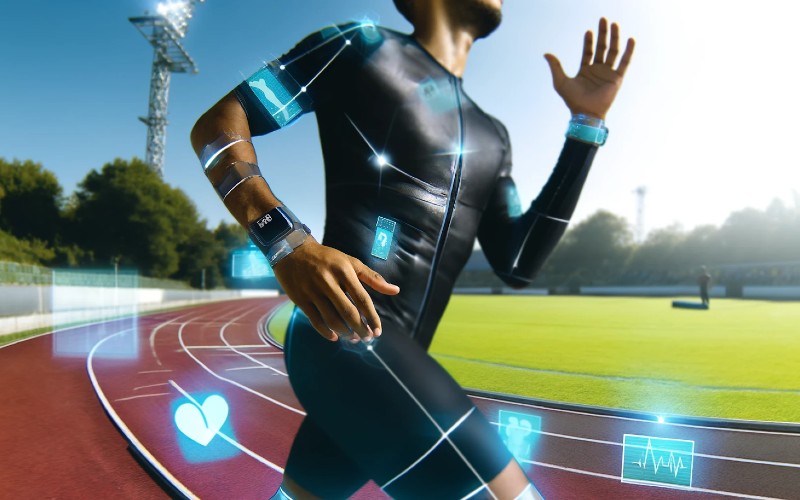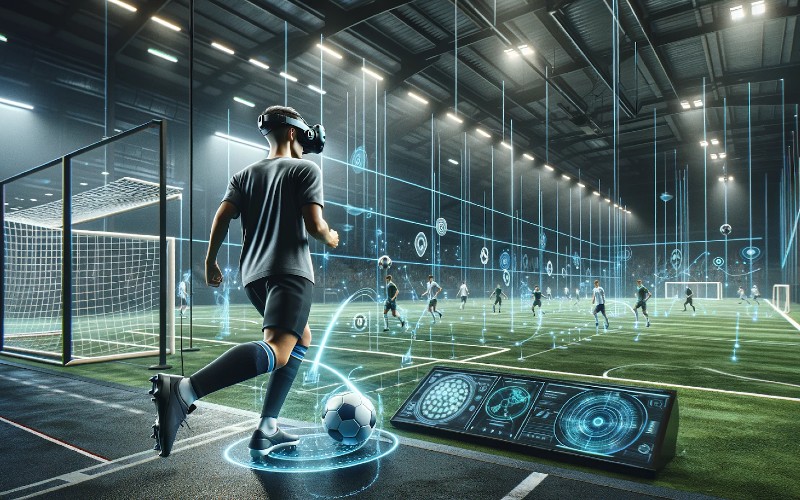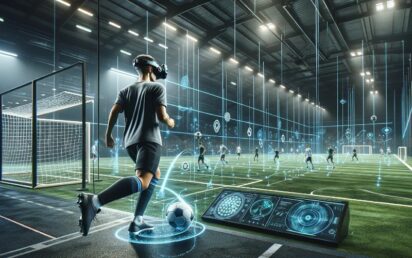In recent years, the world of sports has undergone a transformation largely fueled by advancements in data analytics. The adoption of cutting-edge technologies such as Hawk-Eye in the NBA for the 2023-24 season exemplifies this shift. This powerful tool captures player and ball movements in real-time, providing an unprecedented level of detail and accuracy in sports analytics. Such technologies not only enhance the way games are officiated but also pave the way for new engagement strategies and more informed strategic planning within the leagues. Meanwhile, platforms like 1xBet are harnessing the power of data analytics to redefine sports betting, offering users refined betting options and deeper insights into game dynamics.
Enhancing Performance with AI
Artificial intelligence (AI) plays a pivotal role in analyzing vast amounts of data, offering insights that were previously inaccessible. In sports, AI and data analytics are used to optimize player performance, strategy, and even fan experiences. The use of AI in data analysis allows for the processing of complex datasets at incredible speeds, transforming decision-making processes and strategic approaches in sports organizations.
Betting and Data Analytics
When it comes to sports betting, data analytics provides a significant competitive edge. The integration of technologies like robotic process automation (RPA) and AI allows bettors to access a wealth of data, helping them to identify trends and patterns that can inform better betting decisions. Real-time data integration, powered by IoT and cloud computing, further enhances the ability to make informed wagers by providing up-to-the-minute information on various factors that might affect the outcome of a game.
1xBet and Its Role in Sports Betting
In the rapidly evolving world of sports betting, platforms like 1xBet are at the forefront, leveraging the power of data analytics to offer more accurate betting options and richer user experiences. By incorporating sophisticated data analysis techniques, 1xBet helps users to navigate the complexities of betting, enhancing their chances of making successful bets.
Predictive Models in Betting
The development of predictive models in sports betting has significantly benefited from the recent advances in large language models and AI. These models use historical data to predict outcomes, improving over time through algorithms that learn from past bets to refine their predictions. This technology not only increases the accuracy of predictions but also enhances the efficiency of the betting process, providing a better foundation for decision-making.
Key Benefits of Data Analytics in Sports:
- Performance Optimization: Data-driven strategies help teams and athletes optimize their performance by providing insights into health, fatigue, and in-game tactics.
- Fan Engagement: Teams use analytics to create engaging fan experiences, from personalized content to interactive applications that enhance the watching experience.
- Strategic Decisions: Data insights guide recruitment, training, and game strategies, enabling teams to make informed decisions that can lead to competitive advantages.

Advancements in Wearable Technology
The rise of wearable technology has further revolutionized the sports industry, providing both athletes and coaches with immediate access to biometric and performance data. Devices worn during practice sessions and games can track an athlete’s heart rate, energy expenditure, sleep patterns, and even stress levels. This data is invaluable for optimizing training regimens and recovery periods, ensuring athletes perform at their peak when it matters most.
Key Metrics Tracked by Wearable Devices:
- Heart Rate Variability (HRV): Measures the time interval between heartbeats, an indicator of athlete recovery and stress.
- Acceleration and Speed: Monitors the quickness and velocity of player movements to assess fitness levels and fatigue.
The Role of Virtual Reality in Training
Virtual reality (VR) technology is transforming how athletes train and prepare for competitions. By simulating real-life sports environments and scenarios, VR allows athletes to practice without physical strain or risk of injury. This technology is particularly useful in sports like golf, skiing, and racing, where athletes can refine their skills in a controlled yet realistic setting. VR also aids in cognitive training, helping athletes improve their decision-making and reaction times under pressure.
Applications of VR in Sports Training:
- Skill Enhancement: Athletes can practice specific techniques in a replicated virtual environment, enhancing muscle memory without the physical wear.
- Scenario Simulation: Provides athletes with the ability to experience game-day scenarios, helping them to improve their mental preparedness and tactical awareness.

The Future of Sports Analytics
Looking ahead, the integration of AI and data analytics in sports is set to deepen, with more sophisticated tools being developed that can provide even greater insights. As sports organizations and betting platforms like 1xBet continue to harness these technologies, the impact on performance, fan engagement, and betting will only grow, reshaping the landscape of sports as we know it.
In summary, data analytics in sports represents a convergence of technology, strategy, and entertainment, providing a framework through which the realm of sports can evolve into a more precise and engaging spectacle.


